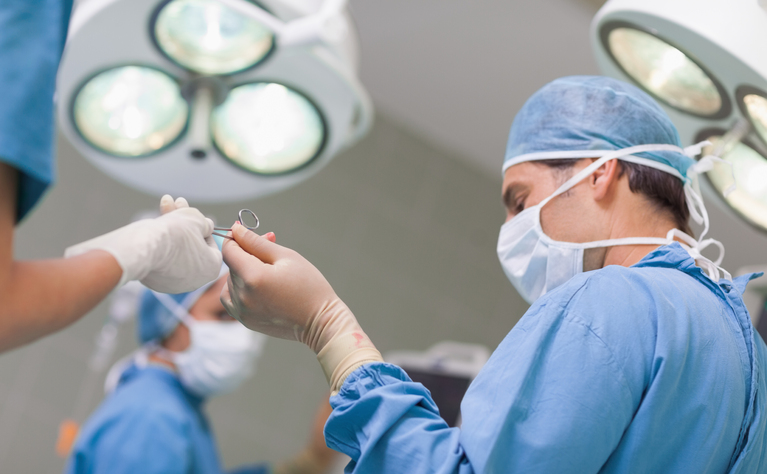Surgery for IBD

For some people their inflammatory bowel disease (IBD) requires that they need surgery to manage their condition. For some surgery is needed in an emergency, life-saving situation but for most it can be planned ahead.
It’s estimated that around 70% of people with Crohn’s disease and 25% of people with ulcerative colitis (UC) will need surgery during their life to help treat their IBD. Surgery is less common in people who have microscopic colitis.
In general, surgery for IBD removes part the part of the bowel (large or small intestine) which is damaged and/or inflamed or treats strictures (narrowing) or abscesses or fistulas. In some cases surgery can mean a stoma is created on the surface on your stomach and your bowel waste goes into a bag, in others the bowel is reconnected. The type of surgery, though, varies from person to person depending on the type of IBD you have and the severity of any damage to your bowel.
Before opting for surgery it is important to understand what the aim of the surgery is, what will happen during the procedure, the recovery period needed and take into account any other considerations. It is also helpful to understand about how the digestive system works and where your IBD is so that you can see what the surgery is trying to achieve.
IBD is a lifelong, chronic condition and having surgery to remove diseased parts of your gut does not cure you, though it may remove some or all of your symptoms. There is also a risk that the inflammation will return to parts of the gut which remain. If you have UC and have all of your large bowel, rectum and anus removed then there is no risk of inflammation returning (however you may still experience symptoms such as fatigue, joint pain).
Reasons for having surgery for your IBD
The reasons for surgery vary from person-to-person. In extreme cases a person is rushed to hospital and the surgery takes place with little notice - in others you have time to consider the surgery and decide if it’s for you.
Some of the reasons people opt for surgery include:
- Poor response to medication
- Strictures (Crohn’s)
- Abscesses or fistulas (usually Crohn’s)
- Delayed growth in children (Crohn’s)
- Cancer
- Emergency reasons
Surgery for Crohn’s disease
It is estimated that around 7 in 10 people with Crohn’s disease receive surgery at some point in their life.
The most common operations for Crohn’s disease include:
- Strictureplasty/Stricturoplasty - reshaping of the bowel to treat strictures (narrowing) and blockages
- Resection - the damaged part of the small intestine or large intestine are removed and the healthy sections are reconnected
- Ileocaecal resection - the terminal ileum (the last part of the small intestine) and the caecum are removed and the small intestine and large intestine are directly connected
- Colectomy with ileostomy - all or part of the colon is removed and the opening of the small intestine is brought to the surface of the abdomen to create an ileostomy (a type of stoma) and a bag is connected to collect waste
- Colectomy with ileo-rectal anastomosis - if the colon is diseased but the rectum remains healthy the small intestine is connected directly to the rectum, bypassing the colon
- Proctocolectomy and ileostomy - if the rectum and colon are diseased then they are both removed and an ileostomy is created with the small intestine
- Surgery for abscesses and fistulas - Abscesses may need to be lanced and drained while fistulas can be treated with a resection or by opening and cleaning them and then leaving them to heal
Surgery for ulcerative colitis
Around one in four people with UC receive surgery at some time during their life.
The most common operations for UC include:
- Proctocolectomy and ileostomy - if the rectum and colon are diseased then they are both removed and an ileostomy is created with the small intestine
- Restorative Proctocolectomy with ileo-anal pouch (J-pouch) - the whole colon and rectum is removed. A pouch is then made using the ileum (lower end of small intestine) and joined to the anus. This is generally done over two operations and a temporary ileostomy is required in between the operations
- Colectomy resection - some of the large bowel is removed and rejoined
If you have ulcerative colitis and have all of your colon, rectum and anus removed then there is no risk of the inflammation returning (as there is nowhere colon for it to return to!), however you may still suffer from other IBD symptoms such as fatigue and joint pain.

No comments:
Post a Comment